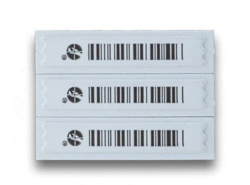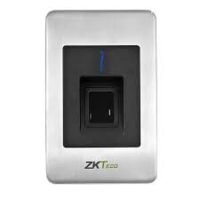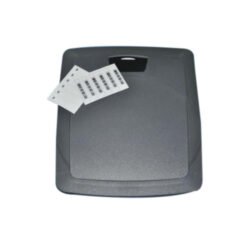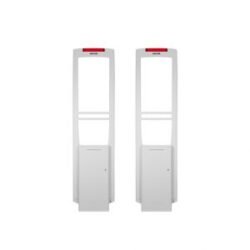Retail /Supermarket Anti Theft Solutions
-17%
Supermarket Anti theft systems
Original price was: KSh60.00.KSh50.00Current price is: KSh50.00. Ex.VAT
-5%
Supermarket Anti theft systems
Original price was: KSh31,000.00.KSh29,500.00Current price is: KSh29,500.00. Ex.VAT
-5%
Supermarket Anti theft systems
Original price was: KSh145,000.00.KSh138,000.00Current price is: KSh138,000.00. Ex.VAT
-7%
Supermarket Anti theft systems
Original price was: KSh7.50.KSh7.00Current price is: KSh7.00. Ex.VAT
-7%
Supermarket Anti theft systems
Original price was: KSh21,500.00.KSh20,000.00Current price is: KSh20,000.00. Ex.VAT
-3%
Supermarket Anti theft systems
Original price was: KSh48,000.00.KSh46,500.00Current price is: KSh46,500.00. Ex.VAT
-3%
Supermarket Anti theft systems
Original price was: KSh61,000.00.KSh59,000.00Current price is: KSh59,000.00. Ex.VAT
-3%
Supermarket Anti theft systems
Original price was: KSh175,000.00.KSh170,000.00Current price is: KSh170,000.00. Ex.VAT
Anti-theft devices are critical for supermarkets in Kenya, as they help minimize losses due to theft, enhance security, and improve overall operations. In Kenya, supermarkets often face challenges with both external theft (shoplifters) and internal theft (staff). Here are some common anti-theft devices and systems used in supermarkets:Anti-theft devices for supermarkets in Kenya
1. Electronic Article Surveillance (EAS) Systems
EAS systems are widely used in supermarkets around the world, and Kenya is no exception. These systems consist of tags and detection gates that help prevent shoplifting.- Tags/Labels: These are placed on items, especially high-value goods. The tags can be either RFID (Radio Frequency Identification) or AM (Acousto-Magnetic). If the tag is not deactivated at the checkout counter or if someone tries to steal an item with an active tag, the alarm will be triggered when they pass through the security gate.
- Detection Gates: Installed at the exit of the store, these gates are linked to the tags. If an item with an active tag is detected, the alarm goes off.
- Efficient detection of shoplifting.
- Easy to install and maintain.
- Can be integrated with point-of-sale (POS) systems.
2. Closed-Circuit Television (CCTV) Surveillance Systems
CCTV cameras are one of the most common and effective anti-theft devices in supermarkets. They serve as both a deterrent and a tool for monitoring and recording suspicious activities.- Real-time Monitoring: Supermarkets can monitor the store floor in real time, allowing security staff to identify potential thefts.
- Recording: CCTV footage can be used for investigations if thefts occur, helping identify suspects or capture evidence.
- Deters theft due to visible cameras.
- Helps in post-incident investigations.
- Enhances overall store security.
3. Security Tags and Alarms
Security tags are small devices that are attached to merchandise. They can be of various types:- Hard Tags: These are commonly used for clothing and electronics and are often attached with a pin or screw.
- Soft Tags: These are usually used for smaller, more compact items. They are less obtrusive but are just as effective when used with EAS systems.
- Provides additional protection against theft.
- Can be easily deactivated or removed during checkout.
RFID technology is becoming increasingly popular in supermarkets for inventory tracking and anti-theft purposes. RFID tags are embedded in products, and they allow for automatic tracking of items.4. RFID (Radio Frequency Identification) Solutions
- Inventory Management: RFID can help reduce losses from both theft and inventory errors by providing accurate, real-time information about stock levels.
- Anti-theft Function: If the item passes through the security checkpoint without being deactivated, the alarm sounds.
- Improves inventory management and reduces human error.
- Provides real-time data for both anti-theft and stock control.
For high-value items, such as electronics or alcohol, supermarkets in Kenya can install locking systems on display cases or shelves. These systems often require staff to unlock the case when a customer requests to see the item. Advantages:5. Electronic Locking Systems for High-Value Items
- Prevents direct access to valuable merchandise.
- Provides control over when and how high-ticket items are accessed.
Some shelves are designed specifically to prevent theft. These may include:6. Anti-Theft Shelving
- Locked Glass Shelving: Items are locked behind glass or other secure materials that require a staff member to unlock them.
- Display Cases with Security Features: Items like jewelry, cosmetics, and electronics can be kept in cases that only staff can open.
- Controls access to high-value items.
- Offers an additional layer of protection for products on the shop floor.
Although not a physical device, training staff to recognize suspicious behavior and understand how to handle security situations is essential. Many supermarkets in Kenya invest in staff training, including:7. Staff Training and Awareness Programs
- Recognizing shoplifting behavior.
- Understanding how to use EAS and CCTV systems.
- Handling security alerts and customer complaints.
- Reduces internal theft by empowering staff.
- Improves overall store safety and customer service.
Supermarkets may implement access control systems for staff and management to limit entry to certain areas such as stockrooms, back offices, or cash registers.8. Access Control Systems
- Key Cards/Entry Codes: Only authorized personnel are allowed to enter specific areas, reducing the opportunity for internal theft.
- Biometric Scanners: Some high-security areas may use biometric systems (fingerprint or facial recognition) for added security.
- Prevents unauthorized access to sensitive areas.
- Enhances internal security and prevents theft by staff.
Automated checkout systems, such as self-checkout kiosks with security monitoring, are also used in some supermarkets. These systems are equipped with sensors that detect if items are scanned correctly and prevent "sweethearting" (employees scanning items incorrectly to benefit customers). Advantages:9. Smart Checkout Systems
- Reduces human error at checkout.
- Minimizes theft during the checkout process.









